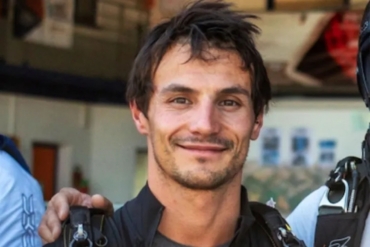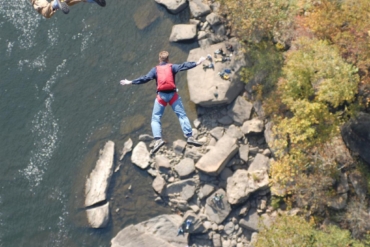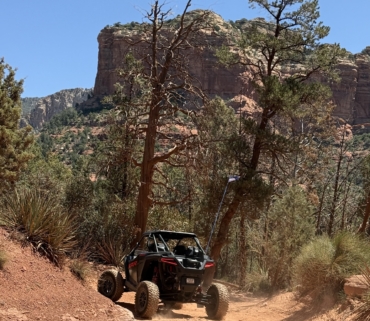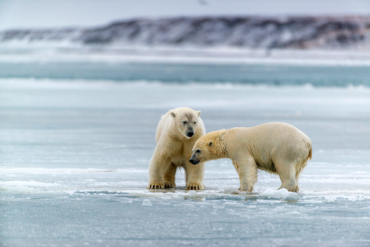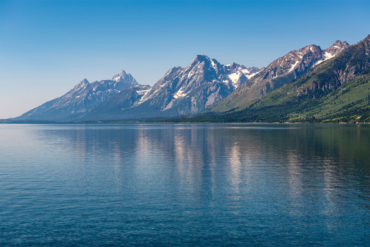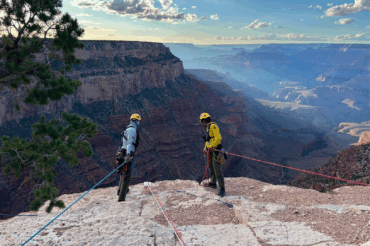One of BASE jumping’s most ambitious pioneers brought in the new year with the first wingsuit flight from South America’s tallest mountain.
Editor’s note: This article was originally published on Explorersweb.
Tim Howell, a British veteran of over 1,000 BASE jumps worldwide, traveled to Argentina in December. His goal was to summit Aconcagua, a 22,841-foot mountain, the highest in the Western Hemisphere. He came up short on the summit, but still set a remarkable record.
Howell and his team stopped several hundred feet from the summit due to inclement weather. But upon returning to Camp 2, located about 19,700 feet up the mountain, Howell decided to strap on his wingsuit.
Even considering his impressive flight history, jumping off Aconcagua on Dec. 29 meant something special to him.
“It was really a big deal for me. Because no one had done it before,” Howell said in an interview on Tuesday. “This is my biggest achievement on the wingsuit side of things.”
That’s no small statement for Howell. A former Marines commando and an Afghanistan veteran, Howell’s BASE jumping career has spanned 10 years and vast swaths of the globe. He’s done wingsuit flights off all six north faces in the Alps, multiple cliffs in the Grand Canyon, and Half Dome in Yosemite. He’s also jumped from mountains in Scotland, Jordan’s Wadi Rum valley, and Greenland.
From Aconcagua, Howell’s flight lasted just 3 minutes.
“I was pretty stoked to have landed it,” he said. “There’s definitely no adrenaline when I jump because everything needs to be really calm. When I land, there’s a sense of accomplishment.”

Planning the Aconcagua Flight
There’s no doubt that BASE jumping remains a dangerous sport. But Howell believes that advances in technology — and the athletes’ preparation for jumps — have improved the odds in recent years.
For the jump from Aconcagua, Howell made sure he did his homework and flight planning.
The preparation starts with being as acclimatized as possible to begin the flight with a low heart rate, he said. He spent 8 days in Aconcagua’s national park before leaping from the mountain with just a wingsuit and a parachute.
Planning includes complex calculations of the glide ratio, mapping the terrain, checking out the landings, and understanding wind direction. There’s a need for trigonometry for some of that work, and Howell used a laser range finder to help with his math.
“I have a notebook full of numbers and calculations,” Howell said. “I don’t think I’ve ever needed to do that for climbing.”

‘Skidding’ Back to Earth
At such a high altitude, the air is also 50 percent less dense compared to sea level. That means “everything takes longer,” Howell said, which is why his landing “was not as good as it should be,” he said with a laugh.
“My wingsuit just got a few holes in it,” he said. “When I landed, it was like a baseball game. Skidding it into the finish.”
BASE jumping is unlike many other sports, Howell added, because it requires a completely different set of skills — usually climbing — just to reach the point where you can “exit” the mountain. For several years now, Howell’s niche has been using his skills as a climber to jump from new mountains around the world.
“For me, I’ve always pushed the narrative that it’s not a jump,” Howell said. “It’s not a stunt for me. It’s a logical, thought-out process.”
So what’s next for this climber at the vanguard of wingsuiting? The Himalayas, of course. Though he’s never visited the world’s tallest mountain range, Howell is heading there this summer, in hopes of a multiperson BASE jump (called a multiway) from Laila Peak (20,000 feet).
“Nobody’s ever really done that sort of thing before,” Howell said.
Check out more of Howell’s BASE jumps and climbing exploits on Instagram.



